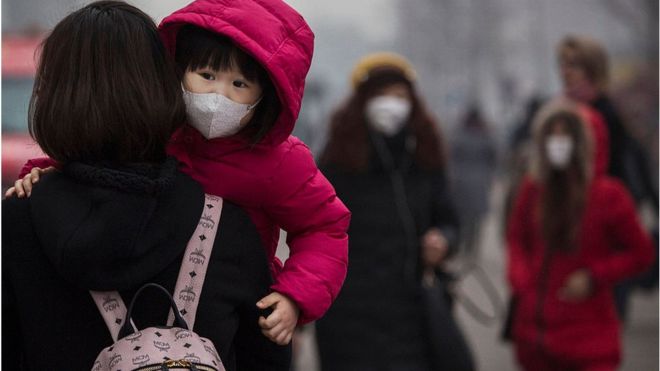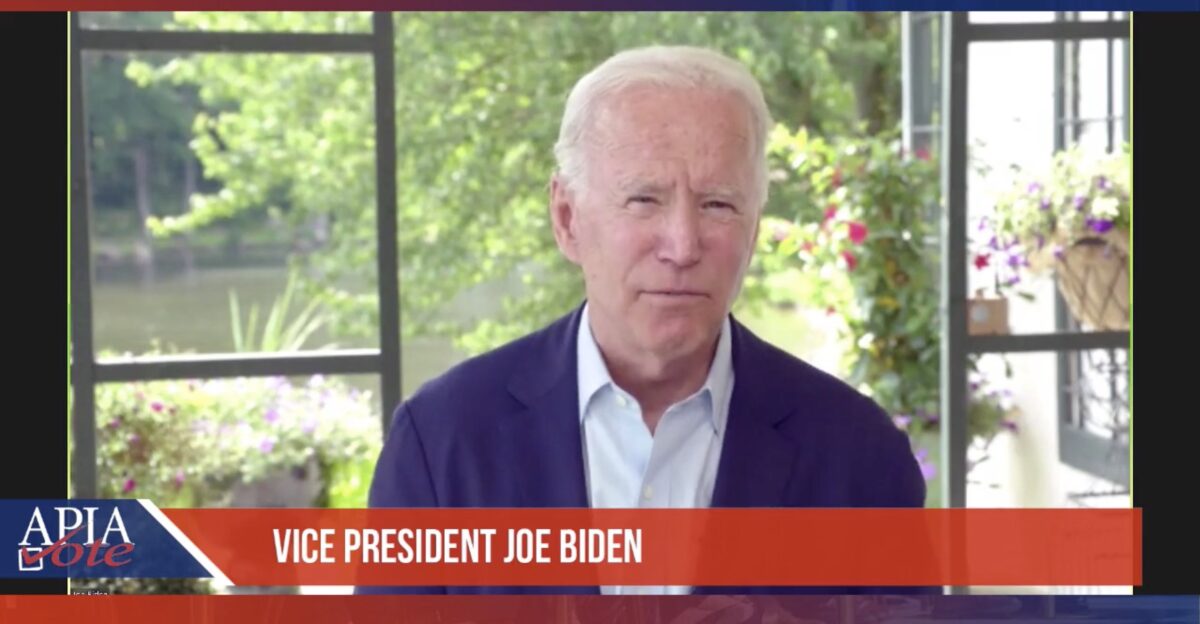
While the week was dominated with giddy speculation over the true meaning of the word ‘covfefe’, a bigger story deserves our attention: namely, President Donald Trump announced moments ago that the United States will withdraw from the historic Paris climate accord.
Negotiated in 2015 by members of the United Nations Framework Convention on Climate Change (UNFCCC), the Paris climate agreement is the world’s first international attempt to slow global climate change by voluntarily limiting the greenhouse gas emissions of member countries. The agreement was set to become effective once 55 countries that emit the majority of the world’s greenhouse gases had signed the treaty; that milestone was reached in April of 2016 when the United States and China — who alone contribute more than 40% of the world’s greenhouse gas emissions — joined the Paris climate accord as signatories.
Climate scientists largely agree that the planet is quickly reaching a point-of-no-return when it comes to climate change. Atmospheric carbon dioxide is roughly 400 ppm, ~30% higher than it was in 1950 and at levels never before recorded in the Earth’s history as determined by ice core measurements. Over the last century, the earth’s air and water have both noticeably warmed, and global sea levels have risen 8 inches due in large part to disintegrating polar ice. These changes are predicted to threaten coastal ecologies and urban centers, increase the frequency of extreme weather events, and devastate the world’s food production. While the Paris climate accord will not alone be sufficient to halt and reverse man-made climate change, it is a necessary first step that will likely slow global warming compared to if global gas emissions continues unchecked.
Despite the dire warnings of climate scientists, however, President Trump has initiated the years-long process to pull the United States out of the Paris climate accord, citing putative negative impacts on the job rate in middle American red states that the president won handily in the 2016 election. Yet, economists disagree with the president’s assessment; they say that membership in the Paris climate agreement would likely create jobs in renewable energy sectors that would offset any job loss affecting America’s coal and oil industries. Economists further note that in the long term climate change will strongly and negatively affect American economic growth. Indeed, even investors in Exxon Mobil support the Paris climate agreement.
It’s unclear how the United States’ withdrawal from the Paris climate agreement will impact the deal. While it is possible that America’s exit will weaken the resolve of other Paris member nations, China as well as most of Europe’s leaders have all vowed to continue their commitment to the Paris climate accord, with China apparently positioning itself to become the world’s new leader on environmental policy.
Indeed, Trump may be surprised to learn that climate change is a potent issue for many within the Asian and Pacific Islander diaspora. A majority of Asian citizens believe climate change is a serious problem, and almost all polled Asian countries score higher on their concern about climate change compared to the United States. Asians are particularly concerned with the effects of severe weather events brought about by climate change, while Pacific Islanders are already experiencing the early impact of storm surges, rising sea levels, seasonal drought, and the death of local ocean life. The United Nations calculates that climate change contributes to nearly 20% of human migration in the Pacific Islands of Nauru, Tuvalu, and Kiribati; and yet only one-fourth of Pacific Islanders say they have the financial resources to move leaving the vast majority of families vulnerable to worsening living conditions.
These dire facts — which demonstrate that it is the world’s people of colour who will likely feel the earliest effects of global climate change — remind us that environmental justice is a racial justice issue. By redefining the environment as all spaces in which people “live, work and play”, AAPI communities have integrated rhetoric and action around environmental justice into our racial justice movement. Writes Julie Sze for the Peace Review in 2004:
The perception of Asian immigrant community activism within the environmental justice movement is another example of the gap that still exists between rhetoric and reality. While virtually all of the people and organizations that identify with the environmental justice movement recognize that [environmental justice] should be multiracial and multiethnic, far fewer would be able to cite examples of Asian immigrant environmental justice activism. This illuminates the problem of Asian invisibility in progressive multiracial activism, which this essay hopes to squarely repudiate. In reality, Asian immigrant communities are taking the mantle of community activism and of the [environmental justice] issues that affect them in their own localities. These range from urban issues to occupational concerns, but in general they are linked through the prism of exclusion based on race, culture, language and citizenship issues, all of which affect the ability of Asian immigrant communities to fully participate and achieve full justice.
Writes Barnali Ghosh in a 2014 essay describing his own commitment as a South Asian American to the environmental justice movement:
Most of us are also recent immigrants, tracing our roots in the US to after 1965 (when the legacy of racist anti-Asian immigration laws ended in the wake of the Civil Rights movement). That means when there’s climate-linked flooding in Kashmir, sea level rise in Bangladesh, crop failures in India, or glacial lake outburst floods in the Himalayas, we’re not looking at abstract climate-impacted communities, but at people who look like us, who might be part of our extended families, with whom we share language, religion, or other cultural touchstones.
…South Asia is climate ground zero, and our actions in the US can either reduce the risk or further endanger 1.7 billion people in the Indian subcontinent. That means every time we take action in the US to vote for climate leaders, shut down another dirty energy facility, divest from mega-polluters, or reinvest in real solutions, we achieve a double victory — not only helping communities in the US but also communities in our homelands. Whether through faith or community, research or activism, South Asian Americans are embedded within the climate justice movement.
The National Asian American Survey of 2016 found that 75% of AAPIs — in California or nationwide — support stricter regulations on greenhouse gas emissions, and that this support for better climate change policies was found across all surveyed AAPI ethnic groups; only 12% of surveyed AAPIs opposed stronger regulation of greenhouse gas emissions. These findings reflect the broader attitudes of Americans on climate change policies and the Paris climate accord: a recent national poll conducted by Yale Opinion Maps found that 69% of registered voters believe that the United States should remain in the Paris climate agreement. Even among Trump supporters, support for the United States’ membership in the Paris climate accord is 47%, compared to 28% who support withdrawal.
By now, it’s fairly clear that President Trump doesn’t care much about left-leaning voters or voters of colour. In particular, Trump has already done a fantastic job of alienating the AAPI voter, including on the subject of climate change which Trump famously declared was a hoax invented by the Chinese government as part of his strategy of deploying Sinophobia and nativism to inflame racial hatred to his electoral advantage.
The concept of global warming was created by and for the Chinese in order to make U.S. manufacturing non-competitive.
— Donald J. Trump (@realDonaldTrump) November 6, 2012
Indeed, Trump has repeatedly stated that he doesn’t believe climate change is real — a position that puts the president at odds with 97% of scientists. This position also threatens to alienate AAPI voters, who are more likely to prioritize environmental issues compared to the average American voter. In fact, only 15% of AAPIs are skeptical that global warming is “real”. (Hint: it’s real.)
While it’s not clear whether AAPI voters actually vote on environmental justice issues, these survey results strongly suggest that Trump’s opposition to climate policies contributed to his poor showing at the ballot box. On Election Day, according to in-language exit polling conducted by AALDEF, 79% of AAPI voters backed Clinton compared to only 17% who cast a vote for Trump. These results echoed earlier findings by the National Asian American Survey which showed high net unfavourables for Trump even in spring of 2016 while the presidential field was still full. But, Trump adopts his disdain towards the AAPI electorate at his own peril. AAPIs are the nation’s fastest-growing electorate. Moreover, we are concentrated in major electoral prizes such as California, New York and Virginia, and our population is growing fastest in swing states such as Nevada and Arizona, as well as in traditionally red states such as Texas and North Dakota.
Trump’s approval ratings — already low at the time of his inauguration — have only eroded over his first few months in August. The latest survey, conducted by The Economist and YouGov, reports that just 38% of Americans approve of President Trump, a further drop of 1% from last week’s catastrophic 39% approval rating. At this rate, it will only take a little more than three months for Trump to receive a mid-twenties approval rating. Importantly, President Nixon faced a 24% approval rating when he resigned to avoid impeachment and many have speculated that the outcome might be similar if Trump reaches the same low rating. Trump’s anti-climate stances will do nothing among AAPI voters to shore up those flagging approval numbers.
Ironically, for all his flaws, it was President Nixon who started the Environmental Protection Agency (EPA) and who championed a stronger environmental policy for the nation. By contrast, today President Trump shows nothing but smug anti-intellectualism and craven partisanship in his opposition to the environmental justice movement. It is clear that Trump places absurd personal and political feuds over policies to ensure the health and well-being of this planet and its future generations; and, it will be people of colour, including AAPI, who will pay the heavy price of his puerilism with our lives and our livelihoods.
Between Trump’s announced withdrawal from the Paris climate agreement and his administration’s efforts to silence climate scientists and dismantle the EPA, Trump establishes one truism: if his presidency will have any lasting legacy, it will be to leave the world worse off than when he entered it.
Act Now! Please join me in signing this We The People petition demanding that the White House remain in the Paris climate agreement.


